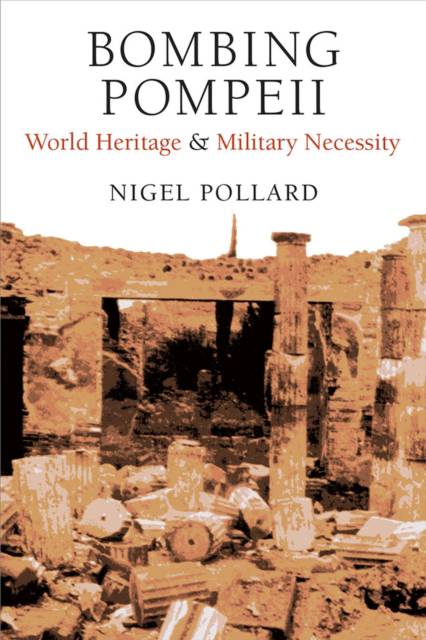
- Afhalen na 1 uur in een winkel met voorraad
- Gratis thuislevering in België vanaf € 30
- Ruim aanbod met 7 miljoen producten
- Afhalen na 1 uur in een winkel met voorraad
- Gratis thuislevering in België vanaf € 30
- Ruim aanbod met 7 miljoen producten
Zoeken
€ 75,45
+ 150 punten
Omschrijving
Bombing Pompeii examines the circumstances under which over 160 Allied bombs hit the archaeological site of Pompeii in August and September 1943, and the wider significance of this event in the history of efforts to protect cultural heritage in conflict zones, a broader issue that is still of great importance. From detailed examinations of contemporary archival document, Nigel Pollard shows that the bomb damage to ancient Pompeii was accidental, and the bombs were aimed at road and rail routes close to the site in an urgent attempt to slow down the reinforcement and supply of German counter- attacks that threatened to defeat the Allied landings in the Gulf of Salerno. The book sets this event, along with other instances of damage and risk to cultural heritage in Italy in the Second World War, in the context of the development of the Allied Monuments, Fine Arts, and Archives - the "Monuments Men."
Specificaties
Betrokkenen
- Auteur(s):
- Uitgeverij:
Inhoud
- Aantal bladzijden:
- 340
- Taal:
- Engels
Eigenschappen
- Productcode (EAN):
- 9780472132201
- Verschijningsdatum:
- 18/11/2020
- Uitvoering:
- Hardcover
- Formaat:
- Genaaid
- Afmetingen:
- 155 mm x 231 mm
- Gewicht:
- 612 g

Alleen bij Standaard Boekhandel
+ 150 punten op je klantenkaart van Standaard Boekhandel
Beoordelingen
We publiceren alleen reviews die voldoen aan de voorwaarden voor reviews. Bekijk onze voorwaarden voor reviews.








